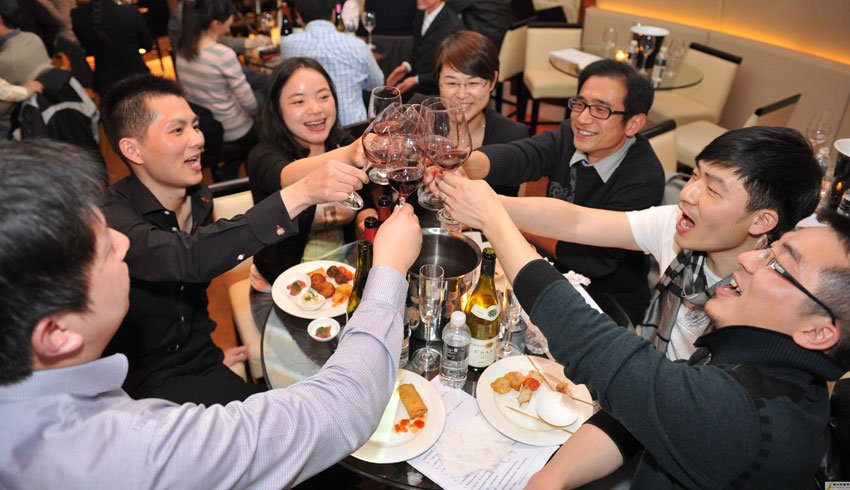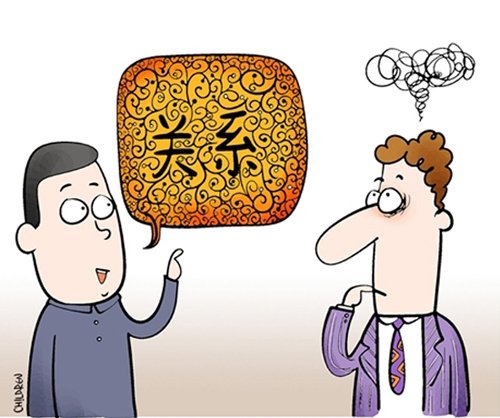
The inner circle

It's a fact that having useful connections can greatly help someone elevate their place on the social ladder. Whether it's advancing your career, or forging a new one, networking is an important element in letting others realise your full potential.

In today's society where knowledge is freely available on the internet, and everybody has a degree, how can a person really stand out from the crowd? Furthermore, how can a company know whether you fit into their company culture?
If you're doing business with people, why should they choose to work with you over the other equally or even better potential partners?

It would seem that the upper echelons of the every social ladder remain very exclusive and very difficult to join. Rightly so! After all, anything of real value cannot be easily obtained by the many. Otherwise it wouldn't be valuable anymore.
They don't deserve it!

In every segment of society, there are always people who seem to have attained their position through unconventional and immeasurable means. Simply put, at face value there are people not in that position who are better suited and yet never get that opportunity. The common complaint is then "They don't deserve it!".

People are really sensitive to social hierarchy, because it influences their self projection of worth. As such, it is important that some systems are put in place that give people the impression that everything is fair and as long as they work hard, they can be in whatever position they want too.
Meritocracy

Meritocracy (merit, from Latin mereō "I earn" and -cracy, from Ancient Greek κράτος kratos "strength, power") is a political philosophy holding that power should be vested in individuals almost exclusively based on ability and talent.
If only..

It turns out that Meritocracy is an ideal put into society to keep the production possibility frontier as efficient as possible. Much like how debt enslaves people to keep working, as does the idea that achievements alone determine one's ability to ascend the social ladder.
Nepotism

Nepotism is favouritism granted to relatives. The term originated with the assignment of nephews to important positions by Catholic popes and bishops. Nepotism can occur in various fields including: politics, entertainment, business, sports, and religion.

Nepotism is deeply rooted in Chinese culture. A business owner will likely pass their business on to their family. Much like how royalty is passed along the family. Confucius advocated the importance of nepotism through his writings on "filial obedience" balanced with "merit". Even though the clan-based feudal system collapsed during the life time of Confucius, his philosophy of nepotism remains strong today.
For this reason, in China, it is difficult to gain favour over someone who has familial ties.
Where does that leave everyone else?

Well, meritocracy isn't exactly a failure. It does to some extent provide people with better rewards based on their merits. For instance, most Cambridge graduates do go on to find better jobs and earn better salaries on average than a mid tier university graduate would. And those with degree's do go on to earn better livings than people who don't have degree's on average.
But it doesn't explain how people with less merits, with no familial ties end up in higher positions.
For that, we need to introduce two concepts.
Ying Chou (应酬) and Guanxi (关系)

Networking was the first point made in this article, and its fitting that it is one of the last too. Having discussed Meritocracy vs Nepotism and observed people in positions not based on their merits, it's reasonable to see that the playing field was never level in the first place. After-all, some people are just born with better cards. However, networking has developed it's own sub-culture in China. A specific term Ying Chou is used to describe the act of taking part in social niceties and engaging in social interaction for the sake of maintaining or building business relationships.
It usually involves drinking with existing clients / colleagues / business partners, but can also just as much be with potential new clients / colleagues or new potential business partners. It could also be between people of high social rank if we're talking about political agendas.
Ying Chou can even be conducted at KTV (something that I mentioned in one of my previous articles).
Establishing a good relationship is the primary goal of Ying Chou. Without this, it is difficult to build trust for potential future cooperation. Much of this is done with the aid of alcohol because people tend to speak less cryptic when drunk, and that means their intentions are clearer to the other party.

This form of social bonding is called "Guanxi" (关系). It literally means relationship.
A lot of emphasis is put on establishing good Guanxi because people are more likely to help people that they care about and have a relationship with, than those that don't have any relationship with them at all. It does entail the notion of "You scratch my back, I scratch yours".

It would appear that establishing social status is more complex than one would first think. One of the hardest things to quantify and study, is relationships. We already know how complicated romantic relationships can be, and it turns out that non-romantic relationships are just as complex. People are diverse, and they are all dealt different cards in life. If we want to be the best we can, then it can be discouraging discovering that the system isn't as fair as we once innocently thought. But, through networking with the right people, and building the right relationships, never forgetting hard work, being where you want to be is still entirely possible. Its just a matter of changing strategy, and accepting that.. It's Not Fair.
If you are interested in my other blogs related to relationships please check out these other blogs below
China's leftover women-Single and not necessarily successful.
Having a Naked Marriage isn't a bad idea at all!

